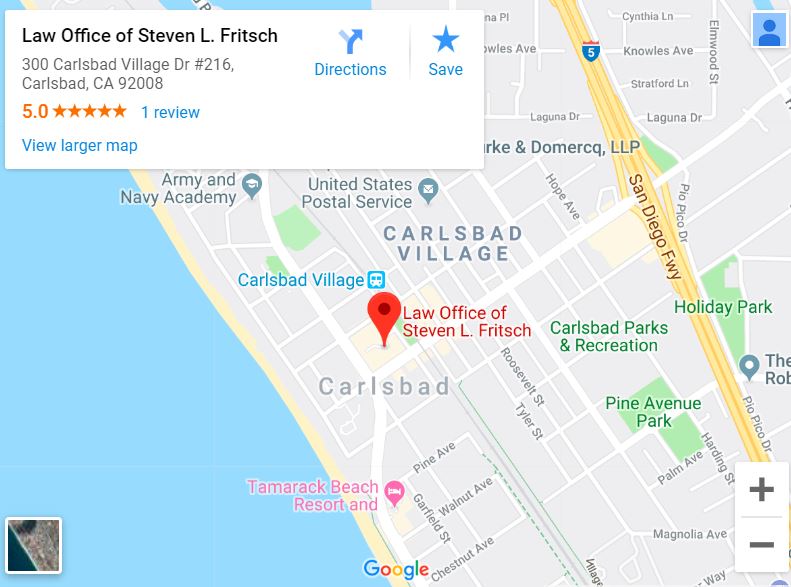
Basic Facts About Divorce in California
California is considered a “no-fault” state, which means the reason for the divorce is listed as “irreconcilable differences.” No permission or agreement is needed. The filer simply needs to meet the filing requirements, which relate back to the couple’s residency. You must have lived in California for six months, and in the filing county for 3 months. Those who do not meet residency requirements may file for legal separation, which will allow for some clarity while you wait until you have been in the area long enough to file for divorce.
The county you live in is the county where you will file for divorce. If you don’t meet these requirements, it is wise to file for a legal separation, which does not have a residential requirement.
Gathering the Paperwork for Divorce in California
Just because filing for divorce is straightforward in California, it doesn’t mean it is easy. There are several different forms that the state requires, as well as additional forms that are applicable to an individual county, such as San Diego County. Depending on where you live in San Diego (sorted by zip code), you may need to begin the filing process in one of four places:
- East County Regional Center – 330 West Broadway, San Diego, CA 92101
- South County Regional Center – 500 3rd Avenue, Chula Vista, CA 91910
- North County Regional Center – 325 South Melrose Dr., Vista, CA 92081
- Family Law Court for the Central Division – 1555 Sixth Ave., San Diego, CA 92101
In order to help make the process a bit easier, San Diego County has put together a Dissolution Packet. a Dissolution (Judgment) Packet as well as a Dissolution (Summary) Packet. In addition to the forms included in the packet, there are also options to apply to have some of the filing fees waived or address issues such as domestic violence, guardianship and paternity. Depending on the circumstances of your divorce, you may need to file local forms as well, which can be found here.
How a Spouse Can Respond to the Divorce Petition in California
The spouse who was served the initial petition, can respond in a number of ways including:
- Filing a response that is in agreement with the way you have presented it, including issues of child custody, visitation, child support, alimony, division of property and debt. If this is the situation that is applicable to you, you will need to write up the agreement, fill out the final forms, and complete the final declaration of Disclosure
- Filing a response that disputes the suggested agreement. In this situation, the couple will need to write an agreement that distinguishes between the areas they do agree on, and the areas where they do not agree. Many couples use various meditation methods in order to go to the judge with as much agreement as possible. Whatever issues are still in contention will be decided by the judge.
- Not responding at all and not having an agreement. – In this situation, the petitioner must wait at least 30 days to begin filing final forms, assuming your spouse does not qualify for extra response time through the Servicemembers Civil Relief Act. The primary form is the Request for Default or Uncontested Dissolution. There are several other related forms, and some that address issues of custody, child support, and spousal support separately. as well as local forms. These forms should be reviewed before by a legal professional before they are filed. You will be mailed your final judgment, and should not consider yourself divorced until you receive it.
- Not filing a response, but has agreed to the terms of the divorce – This is also a case where the agreement needs to be written up, final forms need to be filed, and the Final Declaration of Disclosure needs to filed. Have your forms reviewed, and file them with the county clerk. When your final judgment arrives you will be divorced.
Even though California divorces strive to be less complex that some areas, it is still wise to work with an attorney to make sure no details are missed, as these types of errors can cause unnecessary delays, and may keep you from receiving what you need from the divorce. The Law Office of Steven L. Fritsch is experienced with a variety of family law cases and can help you navigate through the maze of paperwork so your divorce can be as quick and peaceful as possible. Contact us to set up a free consultation.
